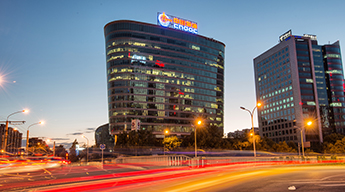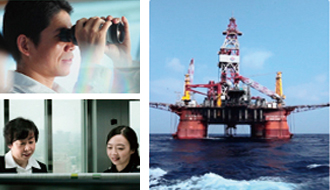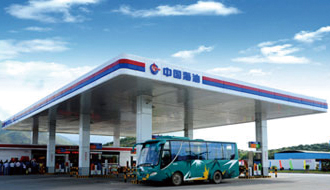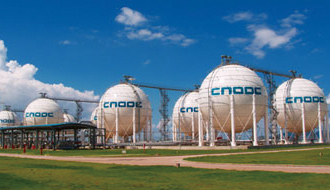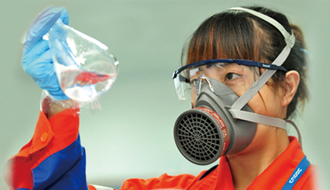| Home |
|

News Releases
114 Days at Missan Oilfield in Iraq |
|||
|
|||
On March 10, 12 oil and gas separators arrived at five degassing stations of Missan Oilfield in Iraq. Here the degassing stations are going through a rehabilitation project. Sun Feng, the deputy project manager and construction manager, felt slightly relieved after checking the equipment one by one. By the day, Sun had worked in Iraq for consecutive 114 days. CNOOC Petrochemical Engineering Co., Ltd., the EPCC general contractor of the degassing stations project, aims to upgrade the five degassing stations before August this year. At the beginning of November 2019, over 300 Chinese workers on site evacuated and returned to China. On November 17, the project shifting resumed, and Sun immediately flew to Iraq. He had planned to unite with his family at the end of this January after the Chinese New Year, but the project was faced with a shortage of manpower then, and the epidemic outbreak in China intensified the challenge, so he chose to stay on site. When the 12 oil and gas separators produced in China arrived in Iraq, how to transport them to sites became a tough issue. Each separator is 33 meters long, and its width and height exceed 4 meters, which requires ultra-long and wide vehicles and the transportation route must be smooth and wide enough. However, the road from the port to the sites was blocked, and it was very difficult to find an alternative. Sun, who has worked in Iraq since 2012, is familiar with local situations. The project team determined to stand on their own feet and find a way out. After the field survey, they found a route, but soon a part of that was closed to build an overpass. They must find another route. At this point, the agency company gave up. Sun got to find a new partner and started again. The staff members evaluated the roads, bridges, forks and constraining factors one by one, paved potholes and repaired damaged sections along the way, and worked out a safe and feasible transportation route in several weeks. The local logistics company, who thought the process would take several months, was impressed by the route map and thumbed up to Sun, “This is really ‘China Speed’!” After the arrival of oil and gas separators, the project team worked hard to get assess to 600-ton cranes for lifting, which are scarce resources in Iraq. They reached out to a Belgian team whose crane fleet was available, but the latter hesitated, as the procedures to obtain safety permits for vehicles and personnel was very complicated for concern about the epidemic outbreak in China. To advance the lifting, Sun and the team made a detailed plan and coordinated with the client. They managed to finish all the procedures in half a day, which usually takes three to four days. Having obtained safety permits, 22 cranes set off from Basra at 3.a.m. and arrived at sites on the day. By March 17, they had finished the lifting of 10 separators. At the end of February, the epidemic appeared in Iraq. Since then, it has become part of Sun’s daily work to check implementation of protective measures in the 5 degassing stations. He got the epidemic prevention materials and medicines in place, and the surgical masks were distributed to personnel on site in the first time. He also frequently communicates with personnel about the epidemic prevention and control measures and the emergency plan to ensure the safety of all members. |
| Print Close Window |

